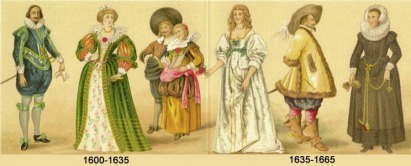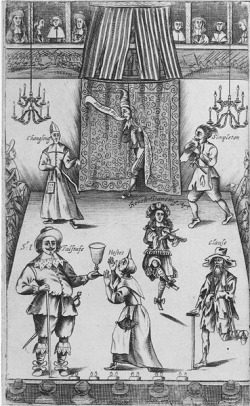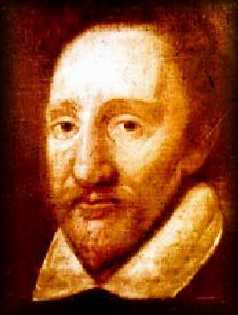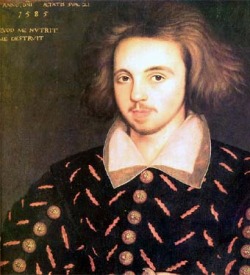Actors
By: Sara Stefansson
Actors in early Elizabethan times had a terrible reputation and were not trusted. It was only when the purpose-build theaters and Shakespeare’s Globe Theatre were built when actors became equivalent to today’s actors. To be hired as an actor in Elizabethan times you had to have a variety of different skills. For example, actors must be able to handle a sword and fall convincingly. Their voices must be loud, for back then they couldn’t use a microphone, so they had to be able to project throughout the large theatres. To ensure the plot was being carried out, they needed to ‘over-act’ by making huge jesters to communicate to the audience. They needed a good memory, to remember lines and blocking. They also had to be male, for no woman were allowed to act. The salaries of these actors depended on the position they took in the theatre. The males who took female parts were paid the least, while the lead parts took three shillings a week. Other part players were paid one shilling a week. Some well known actors were William Shakespeare himself, Richard Burbage, and John Heminges.
By: Sara Stefansson
Actors in early Elizabethan times had a terrible reputation and were not trusted. It was only when the purpose-build theaters and Shakespeare’s Globe Theatre were built when actors became equivalent to today’s actors. To be hired as an actor in Elizabethan times you had to have a variety of different skills. For example, actors must be able to handle a sword and fall convincingly. Their voices must be loud, for back then they couldn’t use a microphone, so they had to be able to project throughout the large theatres. To ensure the plot was being carried out, they needed to ‘over-act’ by making huge jesters to communicate to the audience. They needed a good memory, to remember lines and blocking. They also had to be male, for no woman were allowed to act. The salaries of these actors depended on the position they took in the theatre. The males who took female parts were paid the least, while the lead parts took three shillings a week. Other part players were paid one shilling a week. Some well known actors were William Shakespeare himself, Richard Burbage, and John Heminges.
In Elizabethen times, the costumes would look something like this.
Google Images
Google Images
Acting Troupes
By: Sara Stefansson
Before the first theatre was built in 1576, acting troupes would travel across the county to perform for the public or for royalty. But since there was an enormous breakout of plague, travelers were looked upon with great suspicion. Because of that, they had to get a license to travel from Bailiff of Guild Hall to ensure nobody is spreading disease. Some major acting troupes were:
Lord Chamberlain’s Men
Lord Strange’s Men
Admiral’s Men
King’s Men
Before the first theatre was built in 1576, acting troupes would travel across the county to perform for the public or for royalty. But since there was an enormous breakout of plague, travelers were looked upon with great suspicion. Because of that, they had to get a license to travel from Bailiff of Guild Hall to ensure nobody is spreading disease. Some major acting troupes were:
Lord Chamberlain’s Men
Lord Strange’s Men
Admiral’s Men
King’s Men
An example of what a show in Elizabethan times would look like.
Google Images.
Google Images.
James Burbage in his later life.
Google Images
Google Images
James Burbage
By: Kevin Hnat
James Burbage was born in 1531 in Stratford- upon-Avon. He and his brother- in- law John Brayne built the first ever theatre at the time they simply called it the “Theatre”. Late on James Burbage would create the blue prints for Shakespeare’s Globe Theatre. James Burbage consulted with a man named Dr John Dee about the design and construction on the Globe Theatre. Dr. John Dee was a renowned magician and alchemist who was extremely knowledgeable with architecture. Burbage had a lot of confidence in Dr. John Dee about the construction of the magnificent theatre. Later on Burbage also purchased the Black friar’s indoor playhouse which was originally established in 1576 for the children of the Royal Chapel. After he purchased the land he immediately began to convert it into an indoor hall playhouse for the lord Chamberlain’s Men Burbage hoped that it would be an excellent venue for winter productions. Unfortunately James Burbage died in the bitter cold winter of 1597 the theatre was just a few hundred yards from St Leonard’s Church as it is in this church that James Burbage along with other actors from the era are buried. It was not uncommon for James Burbage to pass on when he did because at this time in his life Burbage was suffering the stresses ofa difficult birthing process for the theatre at Blackfiars and trouble at the “Theatre” with the landlord. James Burbage was a tremendous character to the Elizabethan Playwrights.
By: Kevin Hnat
James Burbage was born in 1531 in Stratford- upon-Avon. He and his brother- in- law John Brayne built the first ever theatre at the time they simply called it the “Theatre”. Late on James Burbage would create the blue prints for Shakespeare’s Globe Theatre. James Burbage consulted with a man named Dr John Dee about the design and construction on the Globe Theatre. Dr. John Dee was a renowned magician and alchemist who was extremely knowledgeable with architecture. Burbage had a lot of confidence in Dr. John Dee about the construction of the magnificent theatre. Later on Burbage also purchased the Black friar’s indoor playhouse which was originally established in 1576 for the children of the Royal Chapel. After he purchased the land he immediately began to convert it into an indoor hall playhouse for the lord Chamberlain’s Men Burbage hoped that it would be an excellent venue for winter productions. Unfortunately James Burbage died in the bitter cold winter of 1597 the theatre was just a few hundred yards from St Leonard’s Church as it is in this church that James Burbage along with other actors from the era are buried. It was not uncommon for James Burbage to pass on when he did because at this time in his life Burbage was suffering the stresses ofa difficult birthing process for the theatre at Blackfiars and trouble at the “Theatre” with the landlord. James Burbage was a tremendous character to the Elizabethan Playwrights.
A young Christopher Marlowe.
Google Images
Google Images
Christopher Marlowe
By: Kevin Crawford
Christopher Marlowe was born in Canterbury in 1564. His date of birth is not known for sure, but his date of baptism is February 26, 1564. His father’s name was John Marlowe and he was a shoe maker. His mother’s name was Catherine. His childhood was not known very well, but he attended The King’s School in Canterbury and later, Corpus Christi College in Cambridge. He received his Bachelor of Arts degree in 1584. The first play he wrote that was played on stage was Tamburlaine in 1587. It was very successful and he wrote a sequel called Tamburlaine Part II. Tamburlaine Part II was written and performed in 1590. Some of his other works include The Massacre at Paris, The Tragical History of Doctor Faustus, and the Spanish Tragedy. Christopher’s plays were very successful so he began to write poetry.
Although Christopher Marlowe’s plays were very well liked, he became an Atheist, which was not very well accepted in those times. Most people thought that you were saying that you were an enemy of God. Some people also though he was a homosexual. Some people believe that people started rumors about his sexual orientation after his death, because he had no way of defending it or explaining that he wasn’t a homosexual.
Christopher Marlowe died on May 30, 1593. Whether you believed that he indeed was a homosexual or not, it is a fact that his work was very well liked and he made history in Elizabethan theatre forever. He was one of the greatest writers of the Elizabethan era.




